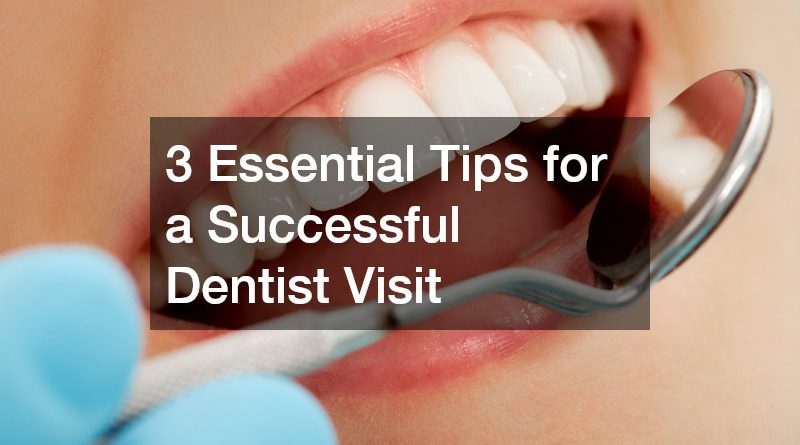3 Essential Tips for a Successful Dentist Visit
Maintaining oral health is a vital part of overall well-being. Yet for many people, visiting the dentist can be a source of anxiety or uncertainty. Whether it’s a routine check-up or a treatment appointment, knowing how to prepare can make a significant difference.
A positive dental experience doesn’t just happen by chance; it results from thoughtful planning, honest communication and a proactive approach to oral care.
To help make your next appointment smooth and stress-free, here are three essential tips for a successful visit.
1. Prepare Ahead of Time
Preparation is key to getting the most out of your dental appointment. Begin by reviewing your dental history and noting any issues you’ve experienced since your last visit. This includes tooth sensitivity, bleeding gums, headaches or jaw pain. By being ready to share this information, you’ll help your dental team provide targeted and effective care.
It’s also wise to confirm your appointment details a few days in advance. Double-check the date, time and location and ensure you’re familiar with any COVID-19 safety protocols or paperwork requirements. Arriving on time or slightly early can reduce stress and help the clinic stay on schedule.
Additionally, if you’re seeing a new dentist, gather your previous dental records or ask your former provider to send them ahead. This gives your new care team a full picture of your oral health, making it easier to spot trends or address ongoing concerns.
When preparing, avoid eating just before your appointment. A clean mouth makes it easier for the dental team to examine your teeth and gums without interference. If fasting isn’t practical, opt for light, non-sugary foods and brush your teeth gently before arriving.
2. Communicate Clearly and Honestly
Open communication is essential for building trust and receiving the right treatment. Never hesitate to discuss your concerns, no matter how minor they may seem. Whether you’re nervous about discomfort or unsure about a procedure, your dental provider can offer reassurance and adjust their approach to meet your needs.
Many people feel nervous or embarrassed about the condition of their teeth. Remember that dental professionals are there to help, not judge. Being upfront about your habits, like smoking, grinding your teeth or skipping flossing, allows them to offer appropriate advice and support.
Pain tolerance varies widely between individuals, so let your provider know if you feel discomfort at any point during your appointment. They can pause, use numbing agents or suggest alternative techniques to ensure your comfort.
For patients with dental anxiety, some clinics offer calming amenities like music, aromatherapy or mild sedation. If this applies to you, mention it when booking so your dental team can make accommodations. Open dialogue leads to better care and a more relaxed experience.
If you’re unclear about a diagnosis or treatment plan, ask questions. Understanding the reasoning behind a recommendation gives you confidence and empowers you to make informed decisions. Take notes if needed or request printed materials for later reference.
3. Commit to Good Oral Hygiene Between Visits
The best way to ensure a successful dental appointment is to practise consistent oral hygiene throughout the year. Brushing twice daily with fluoride toothpaste, flossing once a day and using an antibacterial mouthwash are the foundations of a healthy mouth.
Regular brushing removes plaque and food particles that lead to decay and gum disease. Flossing targets the spaces between teeth where your toothbrush can’t reach. Mouthwash adds an extra layer of protection, helping to eliminate bacteria and freshen your breath.
It’s also important to be mindful of your diet. Sugary snacks and acidic drinks contribute to enamel erosion and cavities. Staying hydrated and choosing tooth-friendly foods like cheese, apples and leafy greens can promote better oral health.
Keep track of your oral habits and be proactive in addressing changes. If you notice bleeding gums, persistent bad breath or new tooth pain, don’t wait until your next scheduled visit. Early intervention can prevent minor problems from becoming major problems.
Sticking to your recommended appointment schedule, usually every six months, helps your dentist catch issues early. Preventive care is more cost-effective and far less invasive than treatments required for neglected conditions.
Visiting the dentist doesn’t have to be an uncomfortable ordeal. With proper preparation, clear communication and a strong commitment to daily care, you can transform your dental visits into positive and productive experiences. Remember, your oral health is a partnership between you and your dental team. By taking an active role in your care, you set the stage for a healthier mouth and greater overall well-being.
